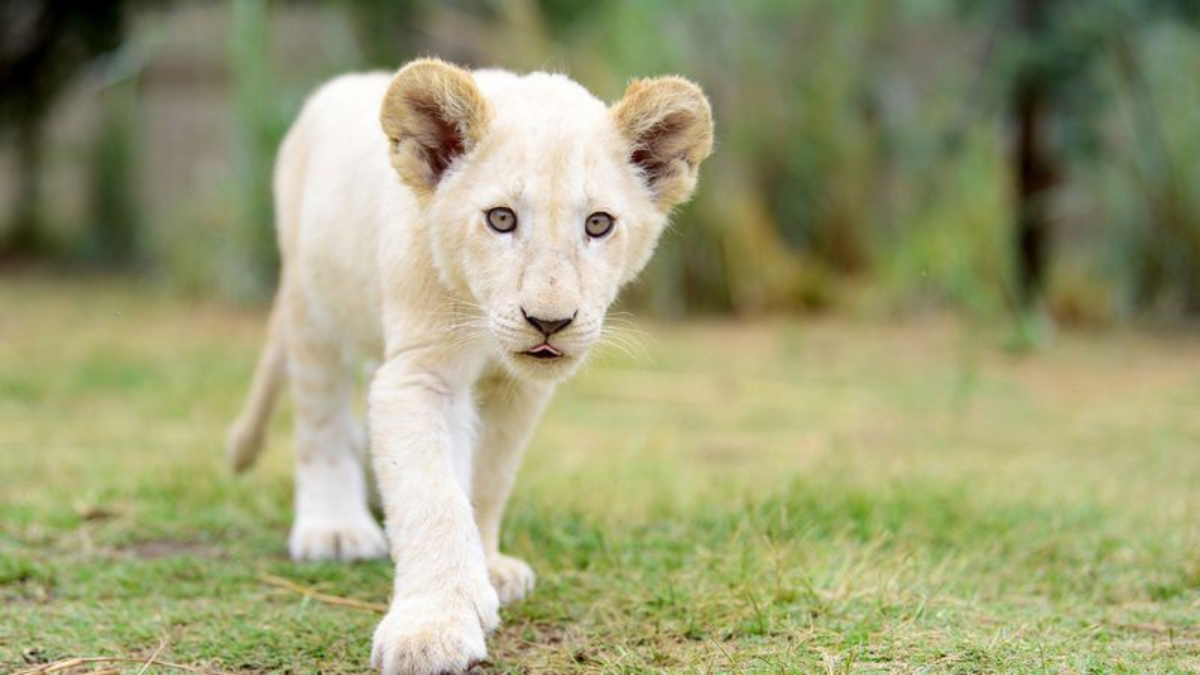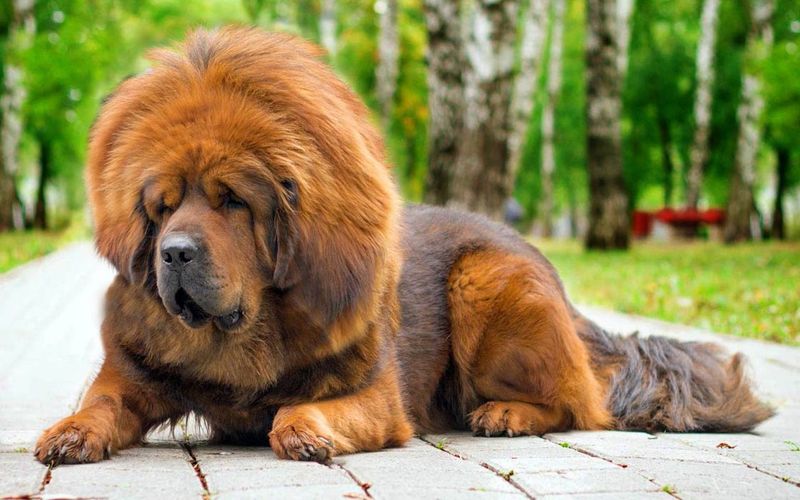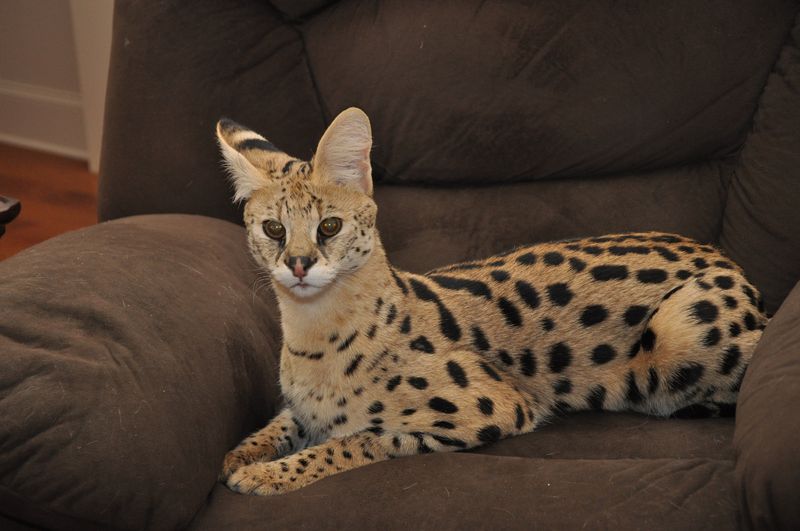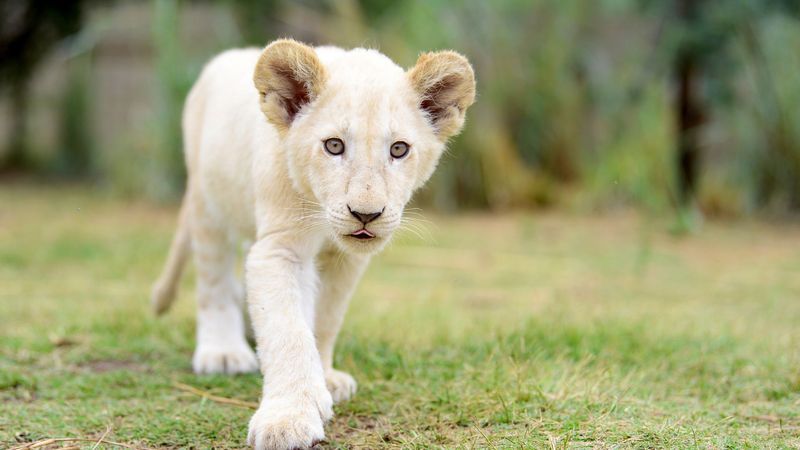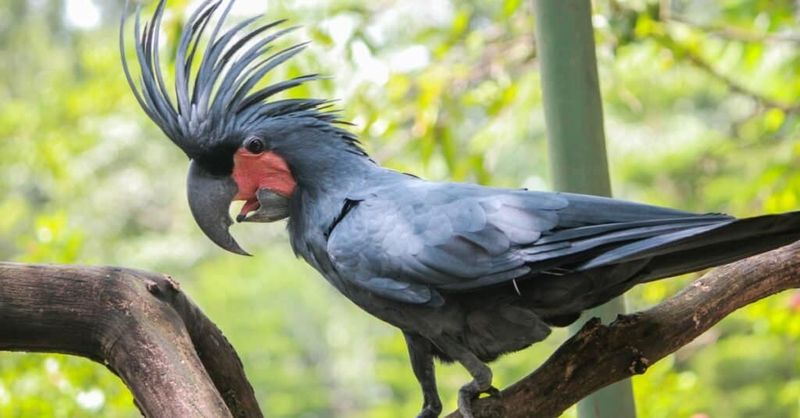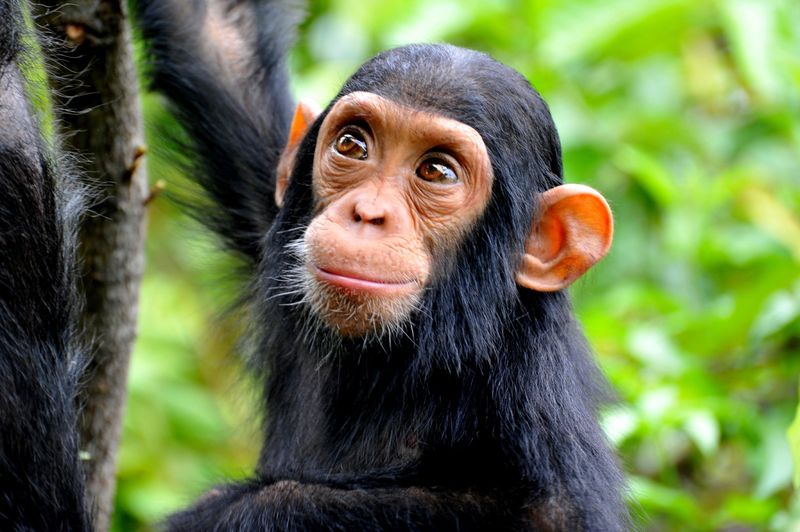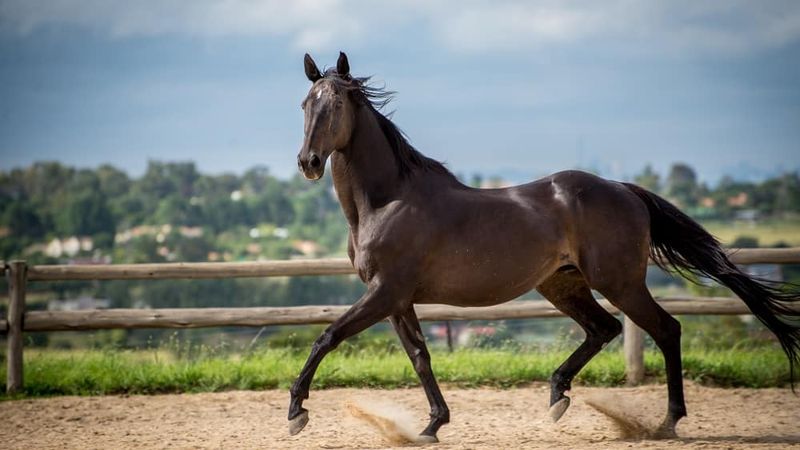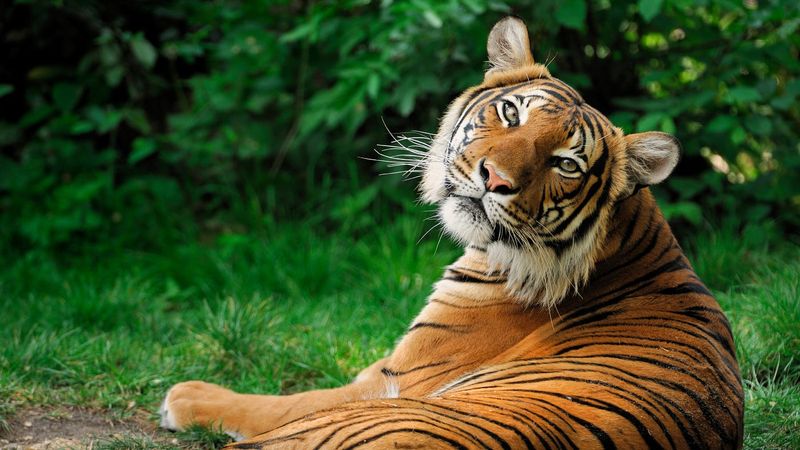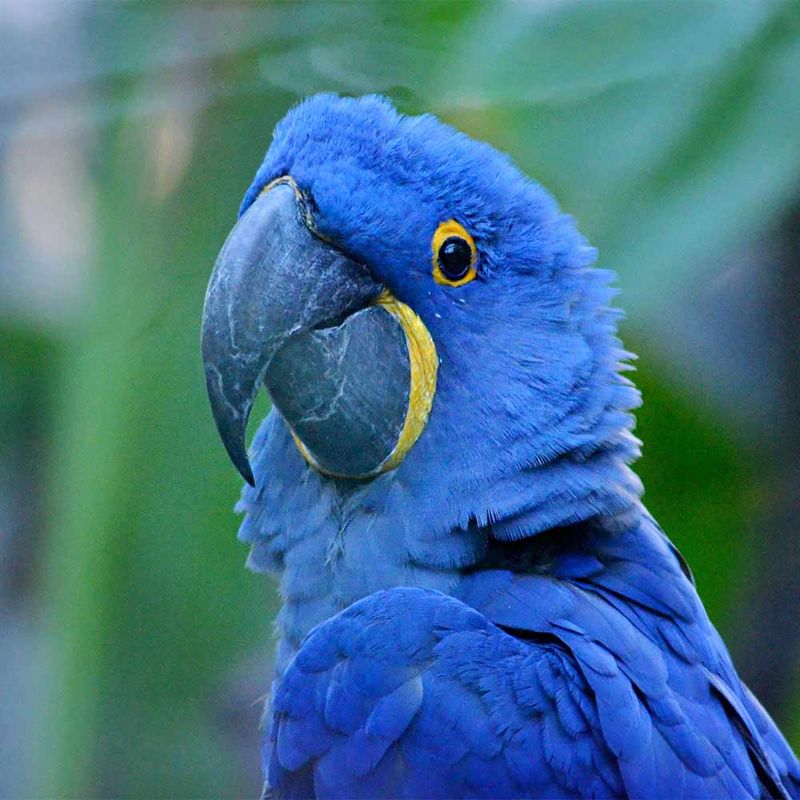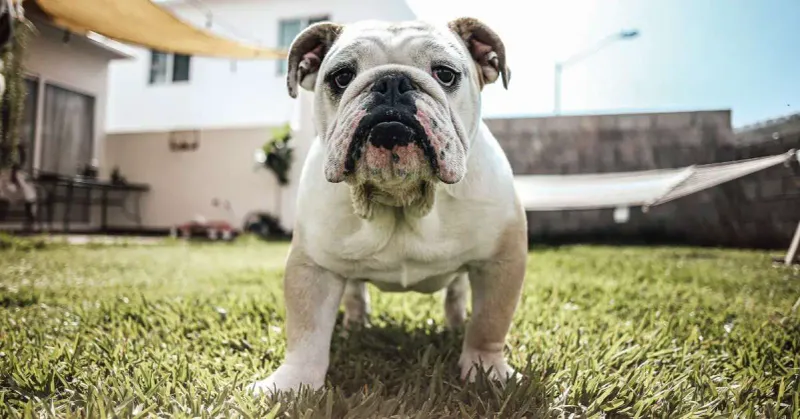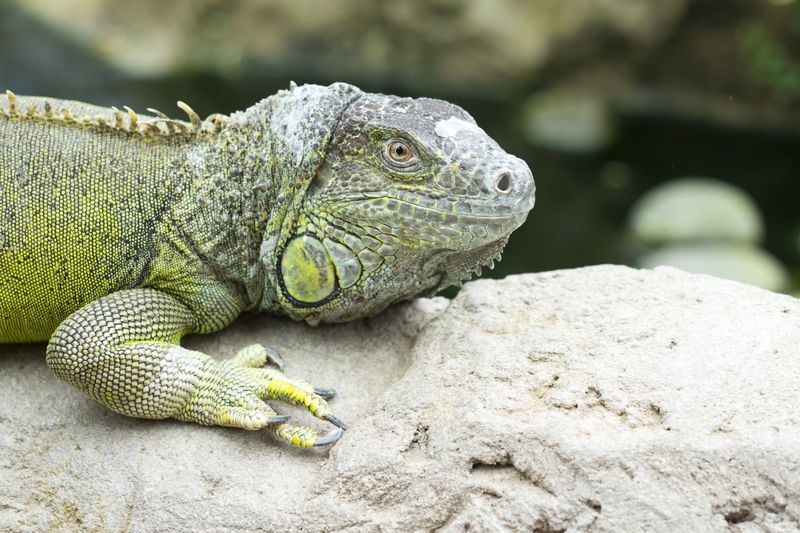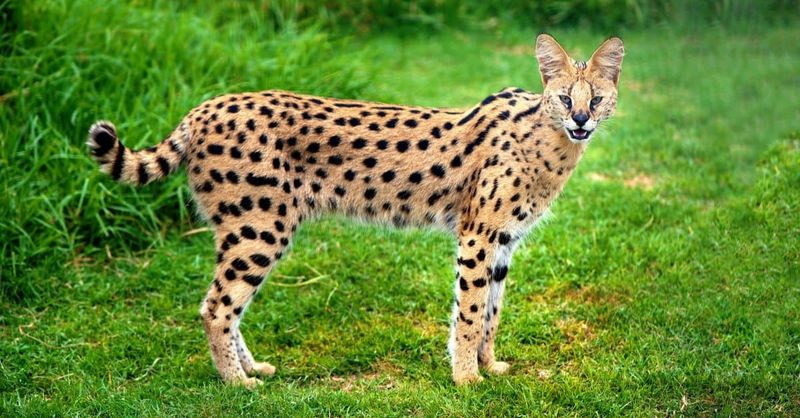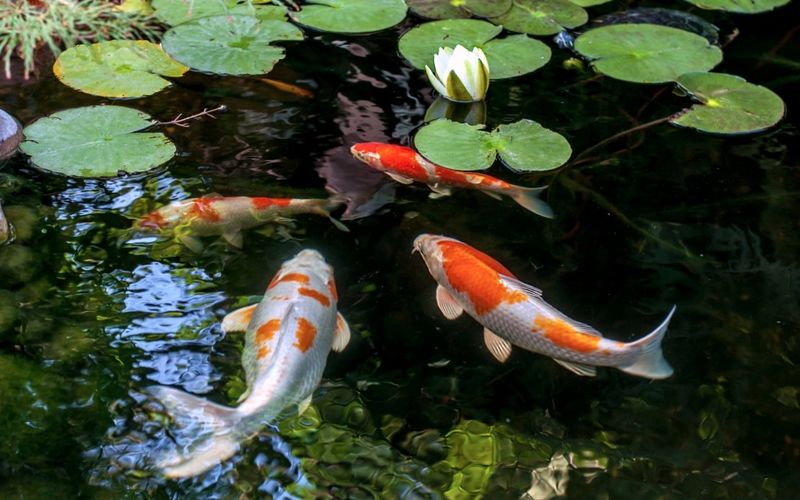📖 Table of Content:
Not all pets are created equal when it comes to cost. Some animals carry luxury-level price tags that reflect their rarity, care requirements, or pedigree. The initial purchase is often just the beginning of a long list of ongoing expenses.
Many of these high-end pets require specialized diets, custom habitats, or frequent visits to exotic animal vets. Grooming, training, and environmental enrichment can quickly add up. These aren’t just pets—they’re full-time responsibilities with premium needs.
Before bringing one of these animals home, it’s essential to understand what ownership truly involves. Time, effort, and money all play a major role in keeping these pets healthy and happy. For those prepared to commit, the rewards can be as exceptional as the price.
1. Tibetan Mastiff
Originally bred to guard livestock in the Himalayas, these massive dogs can cost upwards of $10,000 from reputable breeders. Their thick double coat requires daily brushing during shedding seasons to prevent matting and skin issues. Food expenses alone can reach $100+ weekly due to their size and specific nutritional needs. Regular vet checkups are pricier than average because of their specialized health concerns, including hip dysplasia and hypothyroidism. Training is non-negotiable with these strong-willed giants who can weigh up to 160 pounds. Their protective nature demands early socialization and consistent boundary-setting to ensure they don’t become overly territorial with visitors.
2. Savannah Cat
Born from crossing domestic cats with wild servals, these spotted beauties carry price tags between $10,000-$20,000 for F1 generation cats (those closest to their wild ancestors). Their high energy levels demand custom cat superhighways, climbing trees, and interactive play areas throughout your home. Dietary needs often include raw food diets that mimic what they would eat in the wild, adding hundreds to your monthly expenses. Many states require special permits to own these hybrid cats, particularly those with higher percentages of serval DNA. Veterinary care presents another challenge as not all vets are experienced with hybrid breeds. Their intelligence means they require constant mental stimulation to prevent destructive behaviors.
3. White Lion
The ultimate status symbol among the ultra-wealthy, white lions can cost upwards of $140,000 and require special permits that vary by location. Most jurisdictions prohibit private ownership entirely, making legal acquisition nearly impossible for average citizens. Monthly care costs easily exceed $10,000, including specialized diets of 10-15 pounds of meat daily. Proper housing requires acres of land with reinforced fencing, temperature-controlled shelters, and enrichment features that simulate natural habitats. Owners must employ full-time caretakers with big cat experience and establish relationships with exotic veterinarians willing to make house calls. The ethical implications of owning these rare animals further complicate the moral responsibility of ownership.
4. Palm Cockatoo
Known as the “Goliath” among parrots, these striking birds with distinctive red cheek patches command prices starting at $16,000. Their remarkable 90+ year lifespan means you’re making a lifetime commitment – possibly even arranging for their care in your will. Housing requirements include enormous custom-built aviaries with chew-proof materials, as their powerful beaks can demolish standard cages. Mental stimulation is crucial – owners report spending 3-4 hours daily on interaction to prevent destructive behaviors and psychological issues. Finding qualified veterinary care presents another challenge, as most vets lack specialized training for these rare birds. Their complex dietary needs include specific nuts, fruits, and vegetables that must be sourced fresh daily, adding hundreds to monthly food costs.
5. Chimpanzee
Baby chimps may seem adorable, but their $60,000+ price tag is just the beginning of extraordinary expenses and challenges. Legal ownership is prohibited in most states, requiring special permits and licensing where allowed, with frequent inspection requirements. Adult chimps possess incredible strength – up to five times that of humans – and can become aggressive as they mature. Proper housing costs hundreds of thousands to build, requiring reinforced materials that can withstand their strength and intelligence. Daily care involves preparing specialized diets, providing constant enrichment, and maintaining strict safety protocols. Most owners eventually surrender these animals to sanctuaries when they become unmanageable, creating heartbreak for both the owner and the animal after bonding.
6. Thoroughbred Horse
Championship bloodlines can push initial purchase prices well above $300,000, but that’s merely the starting gate in thoroughbred ownership. Monthly boarding at quality stables ranges from $1,000-$3,000, not including specialized training, which adds another $1,500-$2,000 monthly. Regular farrier visits every 6-8 weeks, dental care, vaccinations, and preventative medications create a constant stream of expenses. Emergency veterinary care can quickly reach five figures when colic or injuries occur – common issues in these high-performance animals. Equipment costs accumulate rapidly: custom saddles ($3,000-$8,000), bridles, protective boots, blankets, and transportation trailers ($50,000+). The time commitment includes daily exercise, grooming, and training sessions, making this luxury pet essentially a second full-time job.
7. Bengal Tiger
The controversial ownership of these magnificent creatures starts at $25,000-$50,000, with numerous legal hurdles varying by location. Many states have banned private ownership entirely following high-profile incidents and animal welfare concerns. Adult tigers consume 10-15 pounds of meat daily, creating food costs exceeding $10,000 annually. Proper enclosures must span several acres with swimming areas, climbing structures, and reinforced safety features costing upwards of $200,000 to construct properly. Specialized veterinary care requires experts willing to work with dangerous animals, often involving travel expenses and premium rates. The ethical considerations cannot be overlooked – these wild animals frequently develop behavioral issues in captivity, leading to stress, aggression, and shortened lifespans despite owners’ best intentions.
8. Hyacinth Macaw
The world’s largest flying parrot commands prices starting at $40,000 due to their endangered status and breeding difficulties. Their stunning cobalt blue feathers and golden facial patches make them prized among collectors willing to navigate the complex permit requirements. Housing needs extend beyond standard cages – these birds require walk-in aviaries with specialized perches that can withstand their powerful beaks. Their diet includes specific nuts like Brazil nuts and macadamias that must be provided fresh daily, creating food bills exceeding $800 monthly. Emotional needs rival those of a human toddler, requiring 3-4 hours of direct interaction daily to prevent depression and self-destructive behaviors. With lifespans reaching 60+ years, owners must create trust funds or specific provisions in their wills to ensure proper care after their own passing.
9. English Bulldog
Don’t let their relatively modest purchase price of $3,000-$5,000 fool you – these wrinkly companions rank among the most expensive dogs to maintain long-term. Their squished faces (brachycephalic syndrome) lead to breathing difficulties requiring specialized veterinary care and sometimes corrective surgeries costing thousands. Skin fold infections develop in those adorable wrinkles without daily cleaning and maintenance. Allergies plague the breed, necessitating prescription diets and medications that can exceed $300 monthly. Temperature sensitivity means your home must remain climate-controlled year-round. Reproductive challenges mean most bulldogs require artificial insemination and cesarean sections to breed, explaining their high initial cost. Their stubborn yet sensitive temperament requires patient training approaches, and many owners hire professional trainers to address behavioral challenges.
10. Green Iguana
While juvenile iguanas cost just $50, their setup and ongoing care requirements place them firmly in the luxury pet category. Adult males can grow to 6 feet long, requiring custom enclosures larger than most bedrooms with specialized UVB lighting, heating zones, and humidity controls. Their strict vegetarian diet demands fresh greens, vegetables, and fruits daily – prepared specifically to meet their nutritional needs. Calcium supplementation and vitamin monitoring are essential to prevent metabolic bone disease, a common and costly health issue. Finding qualified veterinary care proves challenging in many areas, as these reptiles require exotic animal specialists. Temperature regulation failures or dietary mistakes can quickly lead to thousand-dollar emergency visits. Their 20+ year lifespan represents a significant long-term commitment few owners fully anticipate.
11. Serval
These wild African cats cost $20,000-$30,000 and remain illegal in many states due to their classification as exotic wildlife. Their powerful 3-foot vertical jump necessitates enclosures with high ceilings and escape-proof designs costing $10,000+ to construct properly. Diet requirements mimic their natural prey – whole rabbits, chickens, and specialized raw meat blends supplemented with vitamins. Many owners report spending $200+ weekly on food alone. Their wild instincts remain intact despite generations in captivity, leading to marking behaviors that can destroy furniture and create lingering odors. Finding housing with landlords allowing exotic cats proves nearly impossible, and homeowner’s insurance policies often exclude coverage for exotic animals. The specialized veterinary care they require means traveling hours to find qualified professionals willing to treat them.
12. Koi Fish
Champion bloodline koi can fetch $10,000-$100,000 per fish, with the most prized specimens exceeding $1 million at specialized auctions. Creating their habitat requires professional pond construction with proper filtration, aeration, and water quality management systems starting at $25,000 for modest setups. Year-round maintenance includes regular water testing, specialized feeding regimens that change seasonally, and protection from predators. Winter preparations in colder climates necessitate heating systems or indoor holding facilities to prevent freezing. Health management requires relationship-building with aquatic veterinarians who specialize in koi – a rare specialty commanding premium rates. The decades-long lifespan of quality koi means you’re making a multi-generational commitment, with many owners including provisions for their prized collections in their estate planning.
